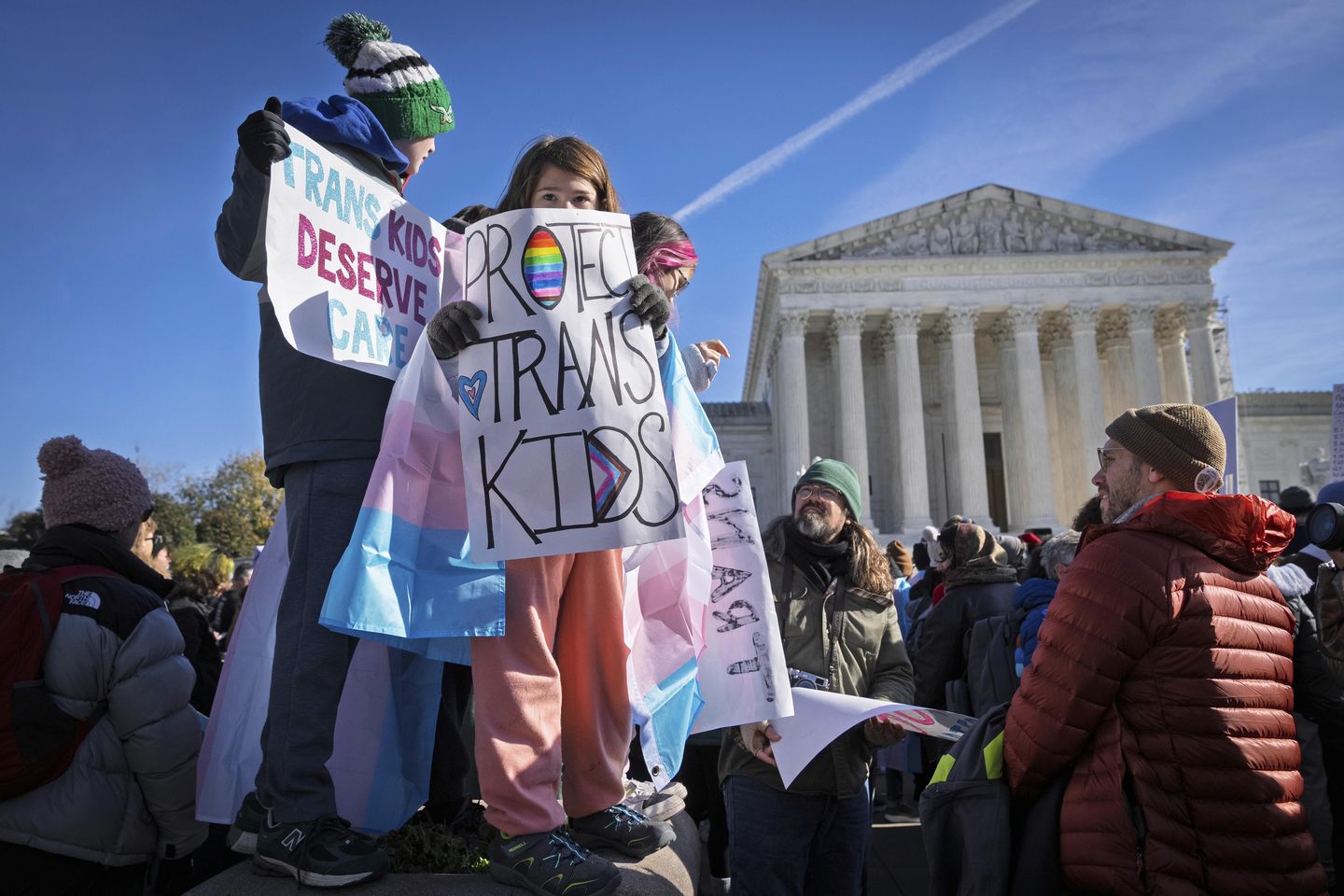
The Department of Health and Human Services raised serious concerns about prescribing drugs and surgeries for youth diagnosed with gender dysphoria, butting up against the U.S. medical establishment’s embrace of gender-affirming care for minors.
The 409-page report, “Treatment for Pediatric Gender Dysphoria,” was billed not as a policy prescription but rather a comprehensive review of the “evidence and best practices for promoting the health of children and adolescents with gender dysphoria.”
That said, the report released Thursday took a dim view of medical interventions for children and adolescents, calling for elevating the role of medical ethics and pointing to psychotherapy as a noninvasive alternative that should be explored.
“Our duty is to protect our nation’s children — not expose them to unproven and irreversible medical interventions,” said Dr. Jay Bhattacharya, National Institutes of Health director, in a statement. “We must follow the gold standard of science, not activist agendas.”
The review cited the growing backlash against the World Professional Association for Transgender Health’s model, which promotes puberty blockers, cross-sex hormones and surgeries, amid spiking fears over safety and the rise of people who detransition because they regret their gender-transition treatment.
The number of those with regrets is frequently listed at about 1%, but the HHS review said that the “true rate of regret is not known and better data collection is needed.”
“The evidence for the benefit of pediatric medical transition is very uncertain, while the evidence for harm is less uncertain,” the report said. “When medical interventions pose unnecessary, disproportionate risks of harm, healthcare providers should refuse to offer them even when they are preferred, requested, or demanded by patients.”
The review repeatedly cited the lack of research and evidence on gender-affirming care and its alternatives, starting with psychotherapy.
“There is a dearth of research on psychotherapeutic approaches to managing gender dysphoria in children and adolescents,” the report said.
The review blamed in part the stigma attached to “conversion therapy,” which was used to change the sexual orientation of gay patients.
“A more robust evidence base supports psychotherapeutic approaches to managing common comorbid mental health conditions,” the report said. “Psychotherapy is a noninvasive alternative to endocrine and surgical interventions for the treatment of pediatric gender dysphoria. Systematic reviews of evidence have found no evidence of adverse effects of psychotherapy in this context.”
The review also raised doubts about the main argument used by advocates of gender-affirming care: that youth with gender dysphoria are likely to die by suicide unless their parents approve their medicalized gender transitions.
“No independent association between gender dysphoria and suicidality has been found, and there is no evidence that pediatric medical transition reduces the incidence of suicide, which remains, fortunately, very low,” said the report.
Today’s HHS report delivers what we’ve long fought for: clear recognition of both the “very low” quality of evidence AND the “significant harms” caused by pediatric gender interventions.
This report surpasses even the Cass Review in its clarity: “We can be certain in the… pic.twitter.com/20atUT5h9i
— Genspect (@genspect) May 1, 2025
Praising the department’s findings was the conservative Center for American Liberty, which represents Chloe Cole, a detransitioner who underwent a double mastectomy at the age of 15.
“This report validates the experiences of our brave clients like Chloe Cole, who were misled, ignored, and harmed by a system that prioritized ideology and profit over ethics and care,” said Mark Trammell, the center’s CEO. “It’s time for America to follow the example of other nations and end the dangerous experiment of pediatric gender transition.”
On the other side was Sarah Kate Ellis, president and CEO of GLAAD, the world’s largest LGBTQ media advocacy group, who called the psychotherapy prescription “discredited junk science” and “the same discredited idea of conversion therapy that ripped families apart and harmed gay, lesbian, and bisexual young people for decades.”
She called “this so-called guidance” both “grossly misleading and in direct contrast to the recommendation of every leading health authority in the world.”
Last year, Britain’s National Health Service stopped prescribing puberty blockers to minors with gender dysphoria, while countries like Sweden and Finland have tapped the brakes on the medical approach for youth amid concerns about its efficacy and safety
Ms. Ellis also noted that the department did not name those who authored or consulted on the report.
The department said that names of the contributors “are not initially being made public, in order to help maintain the integrity of this process,” adding that a post-publication peer review will begin in the next few days with “stakeholders with different perspectives.”















